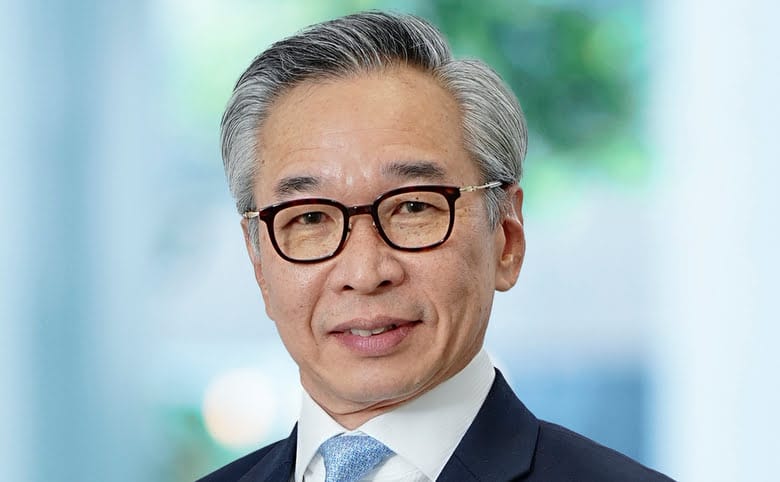CLAS acquired full ownership of the Standard at Columbia student housing property in South Carolina last month
CapitaLand Ascott Trust (CLAS) achieved a 12 percent year-on-year increase in gross profit during the first six months of the year, with the hospitality trust’s managers attributing the Singapore-listed REIT’s improved performance to sustained demand for accommodation and rising room rates.
The trust’s revenue per available unit (revPAU) for the first half of the year grew 5 percent to S$145, compared to the same period last year, while its revPAU of S$155 in the second quarter exceeded the pre-pandemic levels of the same period of 2019 by 2 percent.
The increase in revPAU was driven by higher room rates, particularly in the trust’s key markets of Japan and the US, according to CLAS’ managers, which are owned by Temasek-controlled CapitaLand Investment. Average occupancy across the portfolio remained stable compared to the same period last year at 75 percent, while the longer-stay segment comprised of student accommodation and rental housing properties exceeded 90 percent occupancy.
“CLAS’ operating performance remains robust, delivering double-digit growth for revenue and gross profit in 1H 2024,” CLAS chairman Lui Chong Chee said in a release on Friday. “We continue to press forward with our portfolio reconstitution efforts to enhance CLAS’ portfolio resilience and position CLAS for future growth.”
Cautiously Positive
CLAS booked gross profit of S$172.9 million for the period, while revenue reached S$386.4 million, representing an 11 percent increase from the same period last year. On a same-store basis, gross profit and revenue increased by 3 percent and 4 percent year-on-year, respectively.
CapitaLand Ascott Trust chairman Lui Chong Chee
Total distribution for the period was S$96.5 million, nearly flat from the S$96.3 million logged in the first half of 2023, with the trust’s managers citing depreciation of most foreign currencies against the Singapore dollar as affecting distributions. Distribution per stapled security declined by 8 percent from the prior period to 2.55 Singapore cents.
All of the S$8.5 billion trust’s principal markets, including Australia, Japan, Britain and the US, achieved revPAU equal to or exceeding 2019 levels in the second quarter on a same-store basis, the managers said.
Serena Teo, chief executive of the managers of CLAS, expects the trust’s performance to remain resilient as post-pandemic travel demand moderates, pointing to the trust’s diversification across asset classes, geographies, and contract types.
“Looking ahead, as pent-up demand for travel moderates, regular travel patterns and seasonality are expected to return in more markets. CLAS maintains a cautiously positive view on the demand for lodging,” said Teo.
Teo added, “CLAS’ operational performance is expected to remain resilient. Our geographic diversification, range of lodging asset classes and different contract types provide a strong foundation amidst global uncertainties.”
Portfolio Reconstitution
Acquisitions, completed asset enhancement initiatives (AEIs) and interest savings from the repayment of higher interest debt mitigated the impact of lost income from divestments and ongoing AEIs, the trust’s managers said.
Last month, CLAS acquired the remaining 10 percent stake in the Standard at Columbia student accommodation property in South Carolina. That deal followed the trust’s January acquisition of the 258-unit Teriha Ocean Stage rental housing property in Fukuoka, as well as the purchase of three properties in Jakarta, London and Dublin, which completed in November.
CLAS will unlock S$44.6 million of gains from the divestment of 10 assets in the past year, which were sold at a premium to book value at an average exit yield of 3.8 percent, Lui said, adding that the disposals strengthen the trust’s capacity to redeploy capital towards optimal and accretive uses.
Totaling S$408.1 million, those disposals include the Citadines Mount Sophia, a 154-unit serviced apartment block near Singapore’s Bugis area which was sold to a joint venture of BlackRock and Weave Living, as well as a trio of Osaka hotels sold to Axe Management, a property investment firm backed by some of Hong Kong’s wealthiest families. The trust also divested four assets in France and two hotels near Sydney.
“Part of the divestment proceeds has also been used to pare down higher-interest debt, keeping our gearing healthy at 37.2 percent and delivering accretion as we evaluate opportunities to redeploy the capital,” said Teo.
CLAS, which comprises CapitaLand Ascott REIT and CapitaLand Ascott Business Trust, bills itself as the largest lodging trust in Asia Pacific. The trust’s portfolio comprised 102 properties spanning serviced residences, hotels, student accommodation properties and rental housing assets as of June, with over 18,000 units in 45 cities across 16 countries in Asia Pacific, Europe and the US.
>>> Read full article>>>
Copyright for syndicated content belongs to the linked Source : MingTiandi – https://www.mingtiandi.com/real-estate/finance/capitaland-ascott-trust-1h-gross-profit-up-12-revpau-up-5/
